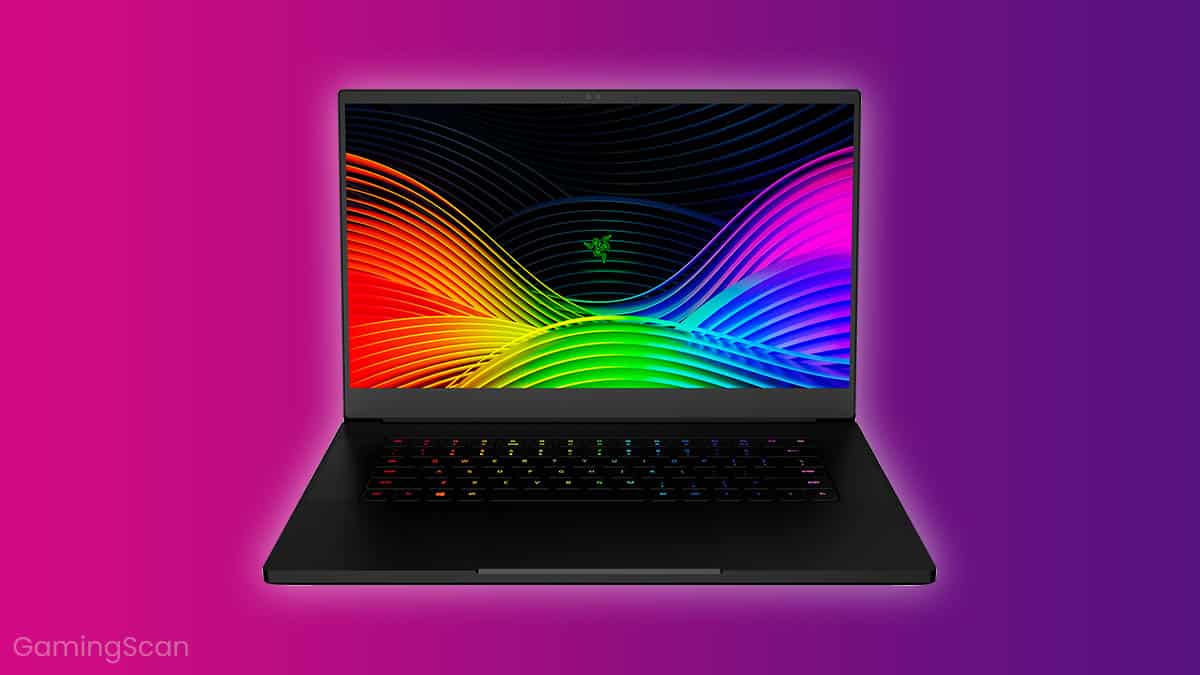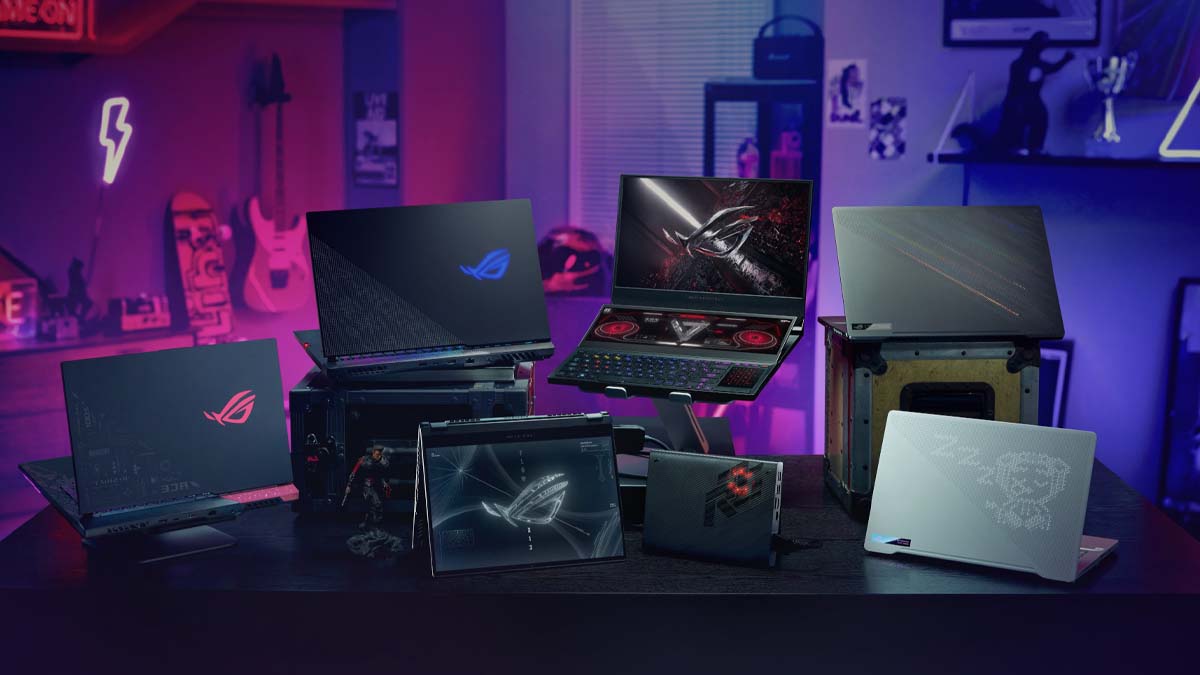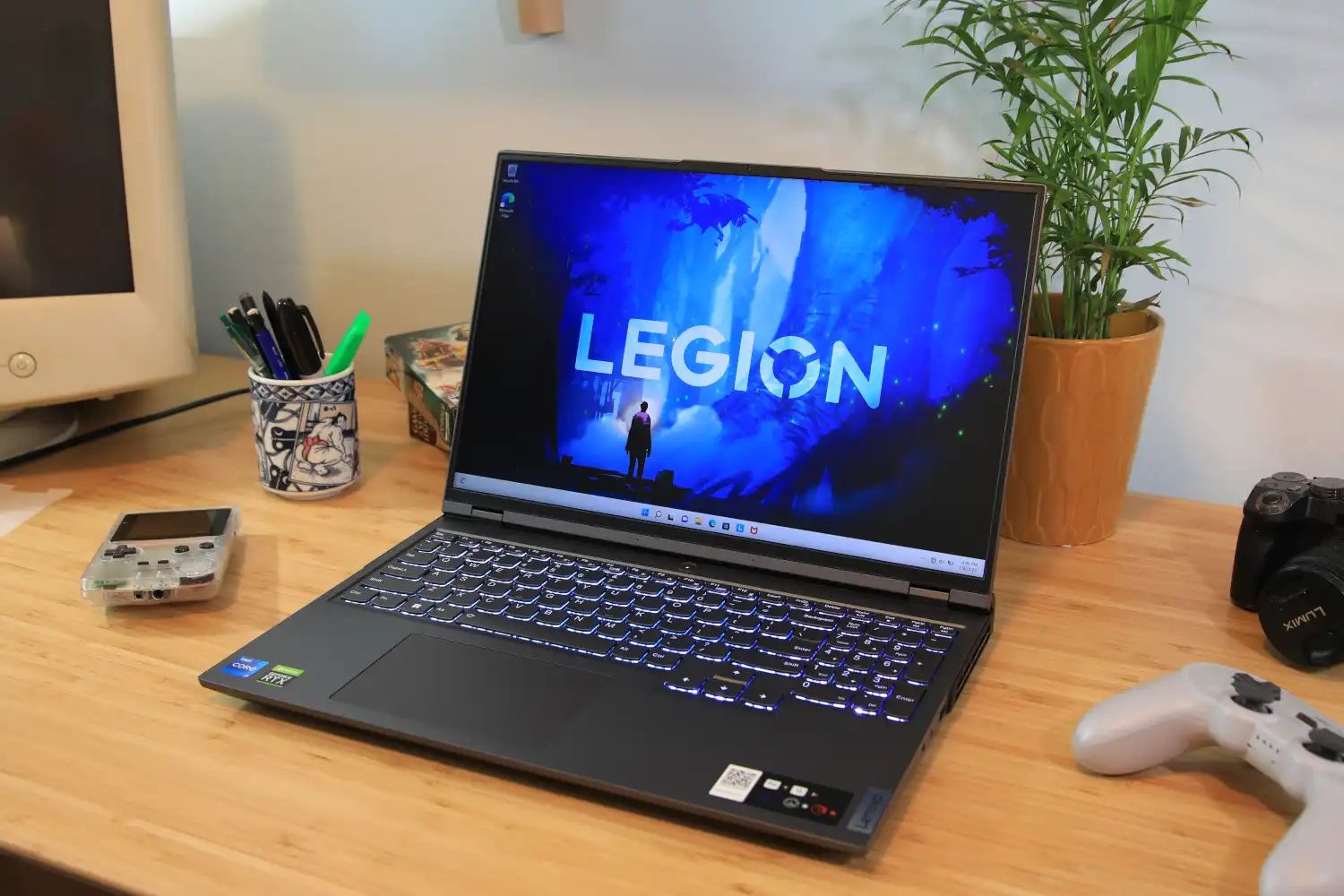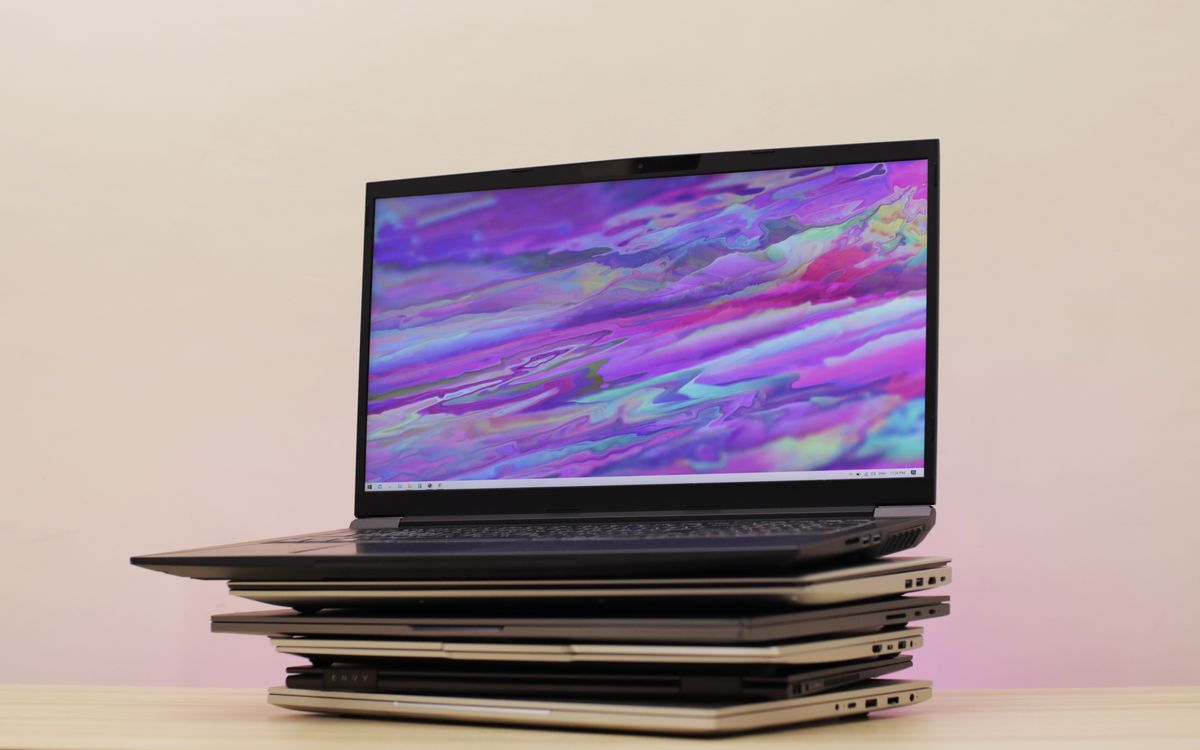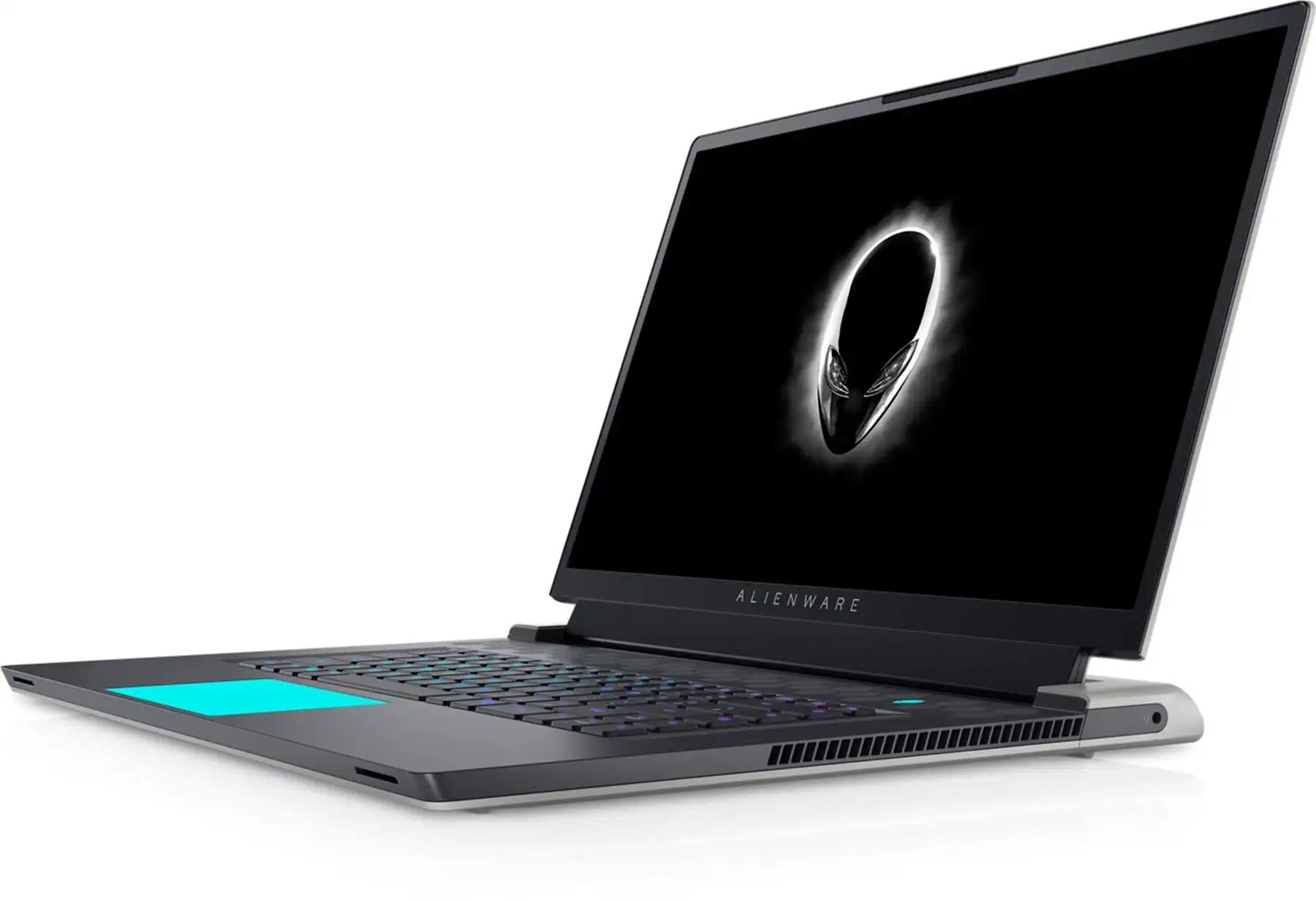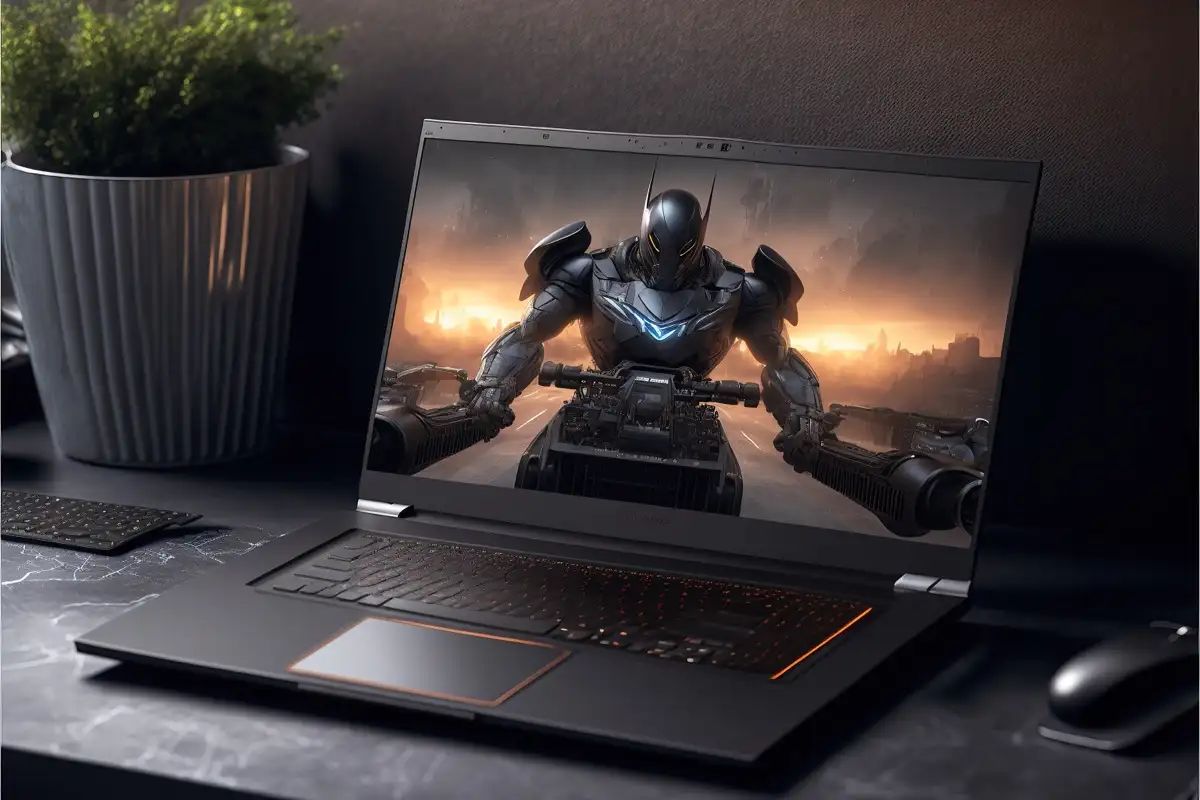Introduction
With the increasing popularity of gaming laptops, it’s essential to understand how to make them last longer. Investing in a gaming laptop is a significant financial commitment, so it makes sense to take proper care of it to ensure longevity and optimal performance. By implementing a few simple strategies, you can extend the lifespan of your gaming laptop and enjoy uninterrupted gaming sessions for years to come.
A gaming laptop is designed to handle the demanding requirements of modern games, which often push the limits of hardware capabilities. However, the components inside a gaming laptop produce more heat and are constantly under heavy load, leading to potential performance issues and reduced lifespan if not properly managed.
In this article, we will explore several effective tips to make your gaming laptop last longer. From maintenance and system optimization to battery management and data protection, these recommendations will help you maximize the longevity of your gaming laptop.
By adopting good habits and following these guidelines, you can avoid common pitfalls and ensure that your gaming laptop continues to perform at its best.
Clean and Maintain Regularly
Regular cleaning and maintenance are crucial to keep your gaming laptop in optimal condition. Over time, dust, dirt, and debris can accumulate inside the laptop, leading to overheating and potential damage to the internal components. Here are some tips to help you clean and maintain your gaming laptop:
- External Cleaning: Use a soft, lint-free cloth to wipe down the exterior of your laptop regularly. This will help remove fingerprints, smudges, and dust that can accumulate on the surface. Avoid using harsh chemicals or abrasive materials that can damage the laptop’s finish.
- Keyboard and Touchpad Cleaning: Use compressed air or a soft brush to remove dust and debris from the keyboard and touchpad. You can also use a microfiber cloth dampened with a mild cleaning solution to clean the keys and touchpad. Be gentle and avoid applying excessive pressure.
- Screen Cleaning: Use a microfiber cloth slightly dampened with a screen cleaning solution to clean the laptop’s display. Gently wipe the screen in a circular motion to remove fingerprints and smudges. Avoid using harsh chemicals or abrasive materials that can scratch the screen.
- Internal Cleaning: Periodically open up your laptop and clean the internal components. However, if you are not confident in doing this yourself, it is advisable to seek professional assistance. Cleaning the inside of your laptop helps remove accumulated dust and debris, which can hinder airflow and lead to overheating.
- Avoid Eating and Drinking Near Your Laptop: Accidental spills can cause extensive damage to your laptop. It’s essential to avoid eating or drinking near your gaming laptop to prevent liquid spills that can seep into the internal components and lead to malfunction.
Regularly cleaning and maintaining your gaming laptop will help prevent overheating, improve airflow, and prolong the lifespan of your laptop. By incorporating these simple cleaning habits into your routine, you can ensure that your gaming laptop performs optimally for years to come.
Use a Cooling Pad
One of the most effective ways to keep your gaming laptop cool and extend its lifespan is by using a cooling pad. A cooling pad is a device designed to dissipate heat from your laptop and maintain optimal operating temperatures. Here are some reasons why a cooling pad is beneficial for your gaming laptop:
- Improved Air Circulation: A cooling pad typically consists of a fan or multiple fans that provide additional airflow under your laptop. This helps to dissipate heat more efficiently, preventing the internal components from overheating during intense gaming sessions.
- Reduces Heat Build-Up: Using a cooling pad can significantly reduce the heat build-up in your laptop. Heat is the enemy of electronic components, and excessive heat can cause performance issues, system crashes, and even hardware failures. By keeping your laptop cool, you can ensure optimal performance and longevity.
- Ergonomic Benefits: Cooling pads are designed with ergonomic considerations in mind. They typically feature an adjustable height and angle, which allows for more comfortable typing and better posture. This can prevent strain on your wrists and neck during long gaming sessions.
- Portability and Convenience: Cooling pads are lightweight and portable, making them a convenient accessory for gamers on the go. You can easily slip a cooling pad into your laptop bag or backpack, ensuring efficient cooling wherever you take your gaming laptop.
- Compatibility: Cooling pads are designed to accommodate various laptop sizes, including gaming laptops with larger form factors. Most cooling pads come with adjustable non-slip pads or clips to securely hold your laptop in place, regardless of its size.
When using a cooling pad, make sure to place it on a solid, flat surface to allow proper airflow. Keep the ventilation vents of your laptop unobstructed to ensure the cooling pad functions optimally. Additionally, regularly clean the cooling pad to remove any dust or debris that may accumulate on the fans.
Investing in a good-quality cooling pad can significantly improve the performance and lifespan of your gaming laptop. By keeping your laptop cool and preventing excessive heat build-up, you can enjoy longer gaming sessions without worrying about performance issues or hardware failures.
Optimize System Performance
To ensure that your gaming laptop runs smoothly and efficiently, it’s important to optimize its system performance. By implementing these optimization techniques, you can enhance your gaming experience and extend the lifespan of your laptop:
- Uninstall Unnecessary Programs: Remove any unnecessary software or applications that you rarely use. These programs can consume valuable system resources and slow down your laptop. By freeing up space and reducing background processes, you can improve overall performance.
- Disable Startup Programs: Many applications automatically start running when you boot up your laptop, causing it to take longer to start and potentially slowing down performance. Disable unnecessary startup programs to reduce the strain on your system resources.
- Manage Background Processes: Close any applications or processes running in the background that are not needed while gaming. This will free up system resources and ensure that your gaming laptop can dedicate its full power to your games.
- Optimize Graphics Settings: Adjust the graphics settings in your games to find a balance between visual quality and performance. Lowering graphics settings can reduce the strain on your GPU (Graphics Processing Unit) and help maintain smoother gameplay.
- Defragment Hard Drive: Over time, files on your hard drive can become fragmented, leading to slower access times. Use the built-in disk defragmentation tool or a third-party software to organize and optimize the placement of files, improving overall performance.
- Disable Visual Effects: Windows operating system includes various visual effects that can consume system resources. Disable or reduce these visual effects, such as animations and transparency, to free up resources and improve performance.
- Upgrade Hardware Components: If your gaming laptop is struggling to keep up with the latest games, consider upgrading certain hardware components like the RAM (Random Access Memory) or the solid-state drive (SSD). These upgrades can significantly improve performance and extend the lifespan of your laptop.
Remember to regularly scan your laptop for viruses and malware and keep your operating system up to date with the latest security patches. Additionally, avoid downloading software or files from unknown or untrusted sources, as they may contain malicious code that can harm your laptop’s performance and security.
By optimizing your gaming laptop’s system performance, you can enjoy smoother gameplay, faster load times, and increased longevity. Regularly review and implement these optimization techniques to ensure that your gaming laptop always delivers top-notch performance.
Keep Drivers and Software Updated
One of the key factors in maintaining the performance and stability of your gaming laptop is keeping its drivers and software updated. Regular updates ensure that your laptop benefits from bug fixes, security patches, and performance enhancements provided by manufacturers and software developers. Here’s why keeping your drivers and software up to date is crucial:
- Improved Stability: Updating drivers and software helps resolve compatibility issues and ensures that all components of your gaming laptop work together seamlessly. This can prevent crashes, freezes, and other stability issues during gameplay.
- Optimized Performance: Manufacturers often release driver updates that optimize performance for specific hardware configurations. By updating your drivers, you can take advantage of these optimizations and improve the overall performance of your gaming laptop.
- Bug Fixes and Security Patches: Updates often include bug fixes that address issues and vulnerabilities discovered in previous versions. By keeping your drivers and software up to date, you can protect your laptop from potential security threats and ensure a smoother gaming experience.
- Compatibility with New Games: Game developers frequently release updates and patches that require the latest drivers and software to run optimally. By staying updated, you can ensure that your gaming laptop is fully compatible with the latest games and their recommended system requirements.
- Manufacturer Support: Manufacturers provide ongoing support for their devices through driver updates. By installing these updates, you can take advantage of any new features or functionality that the manufacturer may have released for your gaming laptop.
To keep your drivers updated, visit the support website of your laptop’s manufacturer. They usually provide a dedicated section where you can download the latest drivers for your specific model. It’s essential to download and install the correct drivers to avoid compatibility issues.
Software updates, including operating system updates and game patches, are typically delivered through official channels such as Windows Update or the game’s launcher. Make sure to regularly check for updates and install them to stay current with the latest software versions.
Automating the update process can make it more convenient. Consider enabling automatic updates for your operating system and enable notifications for available driver updates from your laptop manufacturer.
By maintaining up-to-date drivers and software, you can ensure that your gaming laptop runs smoothly, reduces the risk of security vulnerabilities, and remains compatible with the latest games and applications.
Limit Background Processes
When it comes to gaming performance, it’s important to limit the number of unnecessary background processes running on your gaming laptop. Background processes can consume valuable system resources, such as CPU power and memory, causing your games to run slower or experience lag. Here are some tips to help you limit background processes and optimize your gaming experience:
- Close Unnecessary Applications: Before launching a game, make sure to close any unnecessary applications running in the background. These can include web browsers, chat programs, media players, and other software that you are not actively using while gaming.
- Disable Startup Programs: Many applications automatically start running when you boot up your laptop, consuming resources even if you are not using them. Disable or remove these startup programs to reduce the number of background processes running in the background.
- Manage Task Manager: Use the Task Manager utility in your operating system to monitor and manage running processes. You can identify resource-intensive processes and close them, freeing up system resources for your games. However, exercise caution when ending processes, as some may be essential for the proper functioning of your laptop.
- Use Game Mode: Some operating systems, such as Windows 10, have a built-in Game Mode that optimizes system resources while gaming. Enable Game Mode to prioritize your games and reduce background processes, resulting in improved performance.
- Optimize Antivirus Settings: Antivirus software can run background scans and use system resources, impacting gaming performance. Configure your antivirus software to schedule scans during periods when you are not gaming or adjust the settings to minimize its impact on system resources.
- Manage Windows Updates: Windows updates can sometimes occur during gaming sessions, causing interruptions and slowdowns. Configure your Windows Update settings to prevent automatic updates during specific hours or pause updates until a more convenient time.
While it’s important to limit background processes, ensure that you do not close essential system processes or antivirus software that provides protection for your gaming laptop. Be mindful of the processes you close and monitor the impact on performance.
By limiting unnecessary background processes, you can free up system resources, improve the performance of your games, and minimize the chances of experiencing lag or slowdowns during gameplay.
Manage Battery Usage
When gaming on a laptop, it’s essential to manage your battery usage effectively to maximize its lifespan and ensure uninterrupted gaming sessions. Here are some tips to help you manage the battery usage of your gaming laptop:
- Adjust Power Settings: Use your operating system’s power settings to optimize power usage. Select the “Power Saver” mode when gaming on battery to conserve energy and extend battery life. Customize power plans to reduce screen brightness, adjust sleep and idle timers, and disable unnecessary features like Bluetooth or Wi-Fi when not in use.
- Monitor Battery Health: Regularly check the health of your laptop’s battery using diagnostic tools or software provided by the manufacturer. Batteries tend to degrade over time, and monitoring their health can help you identify any issues early on.
- Avoid Deep Discharges: Deep discharges, where the battery is fully drained, can negatively impact its lifespan. Try to avoid letting your battery completely discharge before recharging it. Instead, aim for partial discharges and recharge your battery when it reaches around 20-30% remaining capacity.
- Use Battery-Saving Features: Many laptops come with built-in battery-saving features. Activate these features to reduce power consumption by dimming the display, limiting CPU performance, or adjusting other hardware settings to conserve energy.
- Optimize Graphics Settings: Lowering graphics settings in your games not only improves performance but also reduces the strain on your laptop’s battery. Adjusting settings like screen resolution, anti-aliasing, and texture quality can help conserve battery power during gaming sessions.
- Close Unnecessary Background Apps: As mentioned earlier, limiting background processes is crucial for gaming performance. It also helps conserve battery power. Close any unnecessary apps running in the background to reduce the strain on your laptop’s resources and extend battery life.
- Invest in a Portable Charger: If you frequently game on the go, consider investing in a portable charger or power bank. These devices allow you to recharge your laptop’s battery even when you’re away from a power outlet, extending your gaming sessions without worrying about running out of battery power.
Remember to properly store and charge your laptop’s battery when not in use for an extended period. Consult the manufacturer’s guidelines for specific instructions on battery maintenance and storage.
By managing battery usage effectively, you can prolong your gaming laptop’s battery life, ensure uninterrupted gaming sessions, and avoid premature battery degradation.
Don’t Overcharge the Battery
One common mistake that many laptop users make is overcharging the battery. While it may seem convenient to keep your gaming laptop plugged in all the time, overcharging can negatively impact the battery’s performance and lifespan. Here’s why you should avoid overcharging your laptop’s battery:
- Battery Degradation: Overcharging can lead to accelerated battery degradation. When the battery remains at 100% charge for extended periods, it causes stress on the battery cells, leading to reduced capacity and shorter overall lifespan.
- Heat Generation: Overcharging can generate excess heat in the battery, which is detrimental to its health. High temperatures can cause damage to the battery cells and result in decreased battery performance over time.
- Reduced Battery Capacity: Over time, overcharging can result in the battery losing its maximum capacity. This means that even when fully charged, the battery will not last as long as it used to, resulting in shorter battery life during gaming sessions.
- Increased Heat and Power Consumption: When a fully charged battery remains plugged in, the laptop may continue to draw power from the charger instead of using the battery. This continuous power flow can cause increased heat production by the charger and potentially increase the overall power consumption of your laptop.
- Unnecessary Energy Usage: Overcharging not only affects the battery but also wastes energy. Leaving your laptop plugged in when the battery is already fully charged consumes unnecessary electrical energy, contributing to higher electricity bills and wasting valuable resources.
To avoid overcharging your laptop’s battery, follow these preventive measures:
- Monitor Battery Levels: Keep an eye on your battery’s charge level and unplug your laptop once it reaches its full capacity. Most laptops have built-in indicators or software that notify you when the battery is fully charged.
- Charge in Small Increments: If you prefer using your laptop while plugged in, charge it in small increments. Allow the battery to discharge to around 80% before reconnecting the charger, as this helps prolong battery lifespan.
- Consider Battery Maintenance: Some laptops have battery management settings that allow you to optimize charging behavior. Make use of these features if available, as they can help prevent overcharging and extend battery life.
- Use Battery Calibration: Occasionally calibrate your laptop’s battery by fully charging it and then discharging it completely. This process helps recalibrate the battery’s charge level indicator and maintain accurate battery readings over time.
Following these practices will help protect your laptop’s battery from overcharging and ensure that it remains in good health, maximizing its lifespan and overall performance.
Keep the Laptop’s Environment Cool
Ensuring a cool environment for your gaming laptop is crucial for maintaining optimal performance and extending its lifespan. Heat is the primary enemy of electronic components, and excessive heat can lead to performance issues and potential hardware damage. Here are some tips to help keep your laptop’s environment cool:
- Use Adequate Ventilation: Ensure that the ventilation ports of your laptop are not obstructed and have enough space around them for proper airflow. Avoid using your laptop on soft surfaces like beds or pillows, as they can block the intake and exhaust vents.
- Invest in a Laptop Cooling Pad: As mentioned earlier, using a cooling pad with built-in fans can provide additional airflow and help dissipate heat from your laptop. This can significantly reduce the temperature of both the laptop’s surface and internal components.
- Elevate the Laptop: Elevating your laptop using a laptop stand or a book can improve airflow underneath and help dissipate heat more effectively. This simple technique can prevent heat buildup and allow for better cooling.
- Keep the Laptop on a Hard Surface: Placing your laptop on a hard surface, such as a desk or table, can help conduct heat away from the laptop. Hard surfaces facilitate better heat dissipation compared to soft surfaces like carpets or fabric-covered objects.
- Minimize Heat Sources: Avoid using your gaming laptop near heat sources such as direct sunlight, radiators, or other electronic devices that generate heat. Excessive heat from external sources can raise the ambient temperature around your laptop, making it harder for it to cool down.
- Clean Dust and Debris: Regularly clean the ventilation ports and fans of your laptop to remove accumulated dust and debris. Dust can block airflow and impede proper cooling, causing a rise in internal temperatures.
- Use Thermal Paste: Applying high-quality thermal paste to the CPU and GPU can improve heat transfer and reduce operating temperatures. Consider consulting a professional if you are not comfortable applying thermal paste yourself.
- Avoid Extreme Temperature Conditions: Operating your laptop in extremely hot or cold environments can negatively impact its performance and lifespan. Try to use your gaming laptop in a temperature-controlled environment within the recommended temperature range provided by the manufacturer.
These practices will help maintain a cool environment for your gaming laptop, ensuring optimal performance and prolonging its lifespan. Remember, heat management is crucial to the longevity and reliability of your laptop, so it’s important to prioritize keeping it cool.
Avoid Overclocking
While overclocking can provide a performance boost to your gaming laptop, it also poses significant risks to its longevity and stability. Overclocking refers to increasing the clock speed of your laptop’s CPU or GPU beyond the manufacturer’s specified limits to achieve higher performance. However, the increased heat and stress generated by overclocking can lead to various issues. Here’s why it’s advisable to avoid overclocking your gaming laptop:
- Increased Heat Generation: Overclocking significantly increases the heat generated by the CPU and GPU. This can cause higher internal temperatures and potentially lead to thermal throttling, where the laptop automatically reduces performance to prevent overheating.
- Shortened Lifespan: Overclocking puts additional strain on the laptop’s components, particularly the CPU and GPU. This increased stress can shorten their lifespan and potentially lead to premature failure or instability.
- Voided Warranty: Overclocking is often considered an unauthorized modification, and it can void the warranty of your gaming laptop. Manufacturers typically do not cover damages caused by overclocking in their warranty policies.
- Potential System Instability: Overclocking can introduce instability in your laptop. This instability may result in system crashes, freezes, or even data loss during gaming sessions, causing frustration and negatively impacting your overall gaming experience.
- Increased Power Consumption: Overclocking requires more power from your laptop’s components, leading to increased power consumption. This can put a strain on the laptop’s power supply and potentially affect battery life when gaming on battery power.
While some gaming laptops come with built-in overclocking features or software that claim to simplify the process, it is still advised to avoid overclocking unless you have extensive knowledge and experience in computer hardware and cooling techniques.
If you prioritize performance, it is advisable to invest in a high-performance gaming laptop with specifications that meet your gaming needs rather than relying on overclocking. This way, you can ensure stable performance without compromising your laptop’s lifespan or risking system instability.
Remember, overclocking is a risky practice that should only be undertaken by experienced users with proper cooling solutions in place. For the majority of gamers, it is recommended to avoid overclocking and focus on optimizing other aspects of your gaming setup to achieve the desired performance.
Backup and Protect Your Data
When it comes to your gaming laptop, data loss can be devastating. Games, save files, and personal data are valuable and often irreplaceable. To safeguard your data from accidental loss or hardware failures, it’s crucial to prioritize backup and data protection. Here’s why you should backup and protect your data:
- Prevent Permanent Data Loss: Hard drive failures, accidental deletions, or malware attacks can result in the permanent loss of your game progress, personal files, and important data. Regularly backing up your data ensures that you have a copy stored separately, providing a safety net against these unforeseen events.
- Easy System Restoration: Having a backup of your gaming laptop’s system, including the operating system and installed applications, allows for easier restoration if you encounter system issues or need to perform a clean reinstall. This can save you time and effort in the event of a system failure or when transitioning to a new gaming laptop.
- Cloud Backup Solutions: Utilize cloud backup solutions, such as Google Drive, Dropbox, or OneDrive, to automatically synchronize and store your important files and game saves. This provides an off-site backup, protecting your data from physical damage, theft, or local disasters.
- External Hard Drives: Invest in an external hard drive with ample storage capacity to regularly back up your gaming laptop. Manually backing up your files and game saves to an external hard drive ensures that you have a local backup that you can easily access and restore when needed.
- Use Reliable Antivirus Software: A robust antivirus solution can protect your gaming laptop from malware and potential data loss. Regularly update and scan your laptop for viruses, trojans, ransomware, and other malicious threats that can cause data corruption or loss.
- Enable Automatic System Backups: Set up automatic system backups on your gaming laptop. This ensures that your data is consistently backed up without the risk of forgetting to do it manually. Schedule regular backups to occur during periods of low activity or when you are not gaming.
- Encrypt Sensitive Data: If you store personal or sensitive information on your gaming laptop, consider encrypting it to protect against unauthorized access. Encryption ensures that even if your data falls into the wrong hands, it remains unreadable and inaccessible.
Remember to periodically test your backups to ensure they are functioning correctly and that your important files and game saves are recoverable. Additionally, keep multiple copies of your backups in separate locations for additional redundancy.
By prioritizing data backup and protection, you can safeguard your valuable gaming data from loss or corruption. Take these measures to protect your files, game progress, and personal data, ensuring peace of mind and the ability to swiftly recover from any unexpected data loss events.
Conclusion
Taking care of your gaming laptop is essential to ensure optimal performance and extend its lifespan. By implementing the tips mentioned in this article, you can maximize the longevity of your gaming laptop and enjoy uninterrupted gaming sessions for years to come.
Regularly cleaning and maintaining your laptop, using a cooling pad, and optimizing system performance are crucial steps to keep your laptop running smoothly. Keeping drivers and software updated ensures that your laptop benefits from bug fixes, security patches, and performance enhancements. Limiting background processes and managing battery usage help conserve resources and ensure efficient operation.
Additionally, maintaining a cool environment for your laptop, avoiding overcharging the battery, and refraining from overclocking provide further protection for your gaming laptop’s components. Lastly, backing up and protecting your data helps safeguard against data loss and provides peace of mind.
Remember, a well-maintained gaming laptop will provide you with a superior gaming experience and save you money in the long run by avoiding unnecessary repairs or replacements. By following these best practices, you can make your gaming laptop last longer and continue to enjoy your favorite games without compromise.







